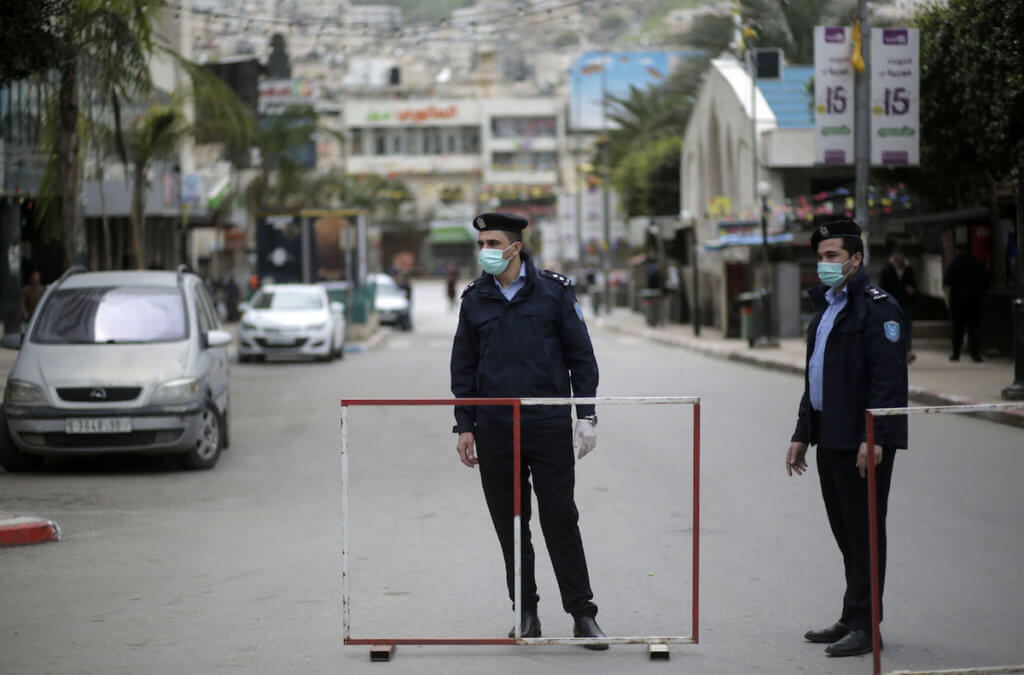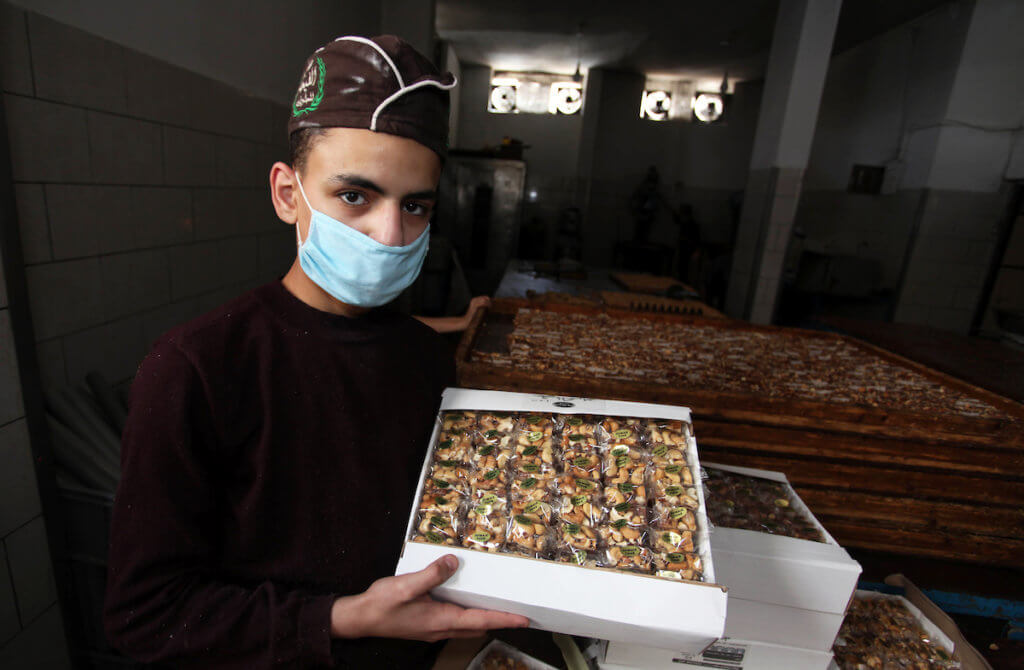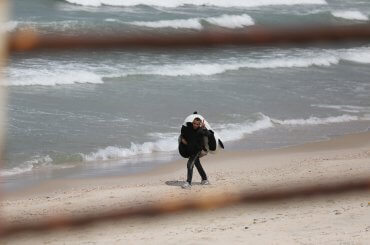Palestinian parents enroll their children in an UNRWA-run school after administrators asked parents to not bring their children for the new year registration due to concerns about the spread of the coronavirus, in Deir al-Balah in the central Gaza Strip on May 14, 2020. (Photo: Ashraf Amra/APA Images)
The Latest:
- 554 total COVID-19 cases; 355 in the West Bank, 20 in the Gaza Strip and 179 in Jerusalem
- No new cases in the West Bank and the Gaza Strip in the last week
- Of the 544 confirmed cases, 431 have recovered; 4 died (2 in Jerusalem, 2 in the West Bank)
- 12,436 Palestinians remain in quarantine, including 595 new cases in-home quarantine
- 16,589 Israelis have tested positive for COVID-19; 266 people have died
- Of those infected in Israel, 3,793 are active cases; 60 are in critical condition; 50 are on ventilators
This week was promising. There are no new COVID-19 cases reported in the West Bank. In Israel, where cases swelled to over 10,000 in a few weeks peaking at more than 16,000 this week, the country is down to under 4,000 active cases. Officials are eyeing a return to normal, albeit a slow and scaled approach.
Next week, Israel will open schools in “green zones,” areas with low rates of infection. While Palestinians have had much lower spread, they are more cautious about a full-scale reopening. Schools still have no plans to open, and depending on the products, shops in areas with a low rate of infection are allowed to open from three to five days a week.
The end of Ramadan will come in a week and bring new challenges as Palestinians traditionally spend the holiday gathering with friends and family. Last week the Palestinian President Mahmoud Abbas renewed an order for a state of emergency just as he lifted some aspects of the lockdown.
Social Distance in Gaza

In Gaza, Hamza Abu al-Tarabeesh was reminded of his grandfather who died of Tuberculosis in the mid-1960s while living in a cramped refugee camp. At the time of his passing in 1965, a cure for Tuberculosis had been available for about 16 years.
“Would my grandfather have had a full life had he not lived in a refugee camp where social distancing was impossible?” al-Tarabeesh wondered.
‘My Life as a Nurse has Changed’

Aaron Lakoff at Independent Jewish Voices, a Canadian organization advocating for Palestinian human rights, began publishing a series of interviews with those living under lockdown beginning in March. In his latest dispatch Lakoff speaks with Mohammad Samara, a nurse in Nablus:
“Since the start of this, my life as a nurse has changed. We have to work more than normal. I work in a public surgical hospital in Nablus. We don’t have any scheduled operations – they’ve all been canceled due to these emergency measures. We only get the worst cases that absolutely need treatment, because we need to be ready with all we have.
“And when I say ‘all that we have’, I don’t mean that we’re really well-prepared. We’re doing all we can do. The ministry of health is doing all it can do. The Palestinian Authority is doing all it can do. But with the shortages in income and the difficult economic situation of the PA, the best thing to do is prevention and caution.”
Celebrating Ramadan Under Lockdown

Dr. Zeena Salman is still seeing patients but mostly telehealth appointments. She does a few in-person visits a week with sick children, but most of the time she is at home, under lockdown, and celebrating Ramadan under the most unusual circumstances. Salman described the atmosphere in her home in a piece she wrote for Time magazine. “Our 2-year-old daughter is totally clueless about the current situation.”
Salman is a pediatric oncologist and consultant to St. Jude Children’s Research Hospital living in the West Bank with her two children and husband Steve Sosebee, the founder of Palestine Children’s Relief Fund. Salman describes how different Ramadan is this year:
“We live in the Holy Land, in Ramallah, right next door to a mosque. The mosques are all closed now, although we hear the call to prayer throughout the day. But this time the words bellowing from the loudspeaker are different and it strikes me every single time I hear them. Instead of saying come to prayer in Arabic they say pray in your homes. The call to prayer is something I’ve heard for my entire life and it’s so innate for Muslims. The first time I heard this new version I got goosebumps because I thought—wait, you can’t change that.”
COVID-19 and Nakba Day

Every year on May 15th, Nakba Day, Mondoweiss contributing writer Nada Elia makes Nakba resolutions. This year she is inspired by mutual aid networks forming among Palestinian communities.
“As mutual aid groups were sprouting in various communities around the world, I was particularly interested in watching the revival, in the West Bank, of the kind of organizing and leadership that first prevailed during the First Intifada, when Palestinians formed popular committees to address the special circumstances of that moment.”
“My Nakba 2020 resolution, which I hope many will join me in, is to make sure we do not go back to old ways of organizing, that would squander the gains made in this moment of global upheaval,” writes Elia.
Odds & Ends
? Don’t miss the Al Shabaka’s upcoming livestream event “Palestinian Leadership in the Time of Pandemic” on May 17. Analysts Mohammed Al-Khaldi and Fadi Quran will discuss the current emergency measures in the West Bank, and their ramifications on the Palestinian people’s trust in their leadership. Register here.
Links of Interest
- Palestinian Workers in Israel Caught Between Indispensable and Disposable (MERIP)
- COVID-19 Middle East Map (Nature Middle East)
- ‘A different world is possible’: Palestine advocates step up fight under COVID-19 (+972 Magazine)


